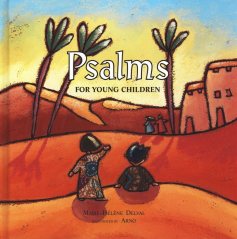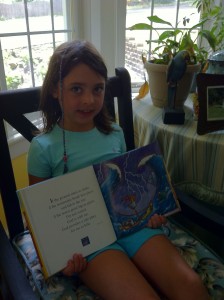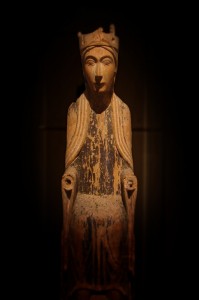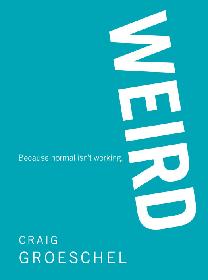You may use this Prayer, print it in your bulletin, adapt it as you’d like, etc. Please use common attribution.
On this day when we remember fathers, let us offer our prayers to God, who has adopted us as sons and daughters through the waters of baptism.
O God, you formed your son Adam from the dust of the ground, and breathed your holy breath into his lungs, giving us all the gift of life; breathe again your Life into, us, your children and your Church, that we might be one with you.
Lord in your mercy,
Hear our Prayer.
Lord of all, you formed great nations out of great families, and blessed the children of Abraham, Isaac, and Jacob that they might be a blessing to all. Bless our nation, and all the nations of the world, with your Fatherly Presence, wisdom, and peace.
Lord in your mercy,
Hear our Prayer.
As the children of Israel found themselves slaves, making bricks for Pharaoh, before you heard their cry and brought them to freedom we pray for all in this world who are in trouble of any kind. We pray for the poor, the hungry, the imprisoned, and the victims of war and all who live in terror’s wake.
Lord in your mercy,
Hear our Prayer.
Your Son, Jesus, was raised by Joseph the carpenter, who saw him grow year by year in strength and wisdom. We pray for all in our family of faith, and especially those celebrating birthdays and anniversaries this week . . .
Lord in your mercy,
Hear our Prayer.
Your Son, Jesus, neither married nor raised children of his own, but he helped countless people come and mature to fullness of life and to Life Everlasting; and so we pray for all who nurture others with love and patience, as spiritual parents.
Lord in your mercy,
Hear our Prayer.
Jacob’s son, Joseph, to whom he gave the radiant coat, was beaten, betrayed, and sold into a life of hardship before rising to greatness; and so we pray for all who are injured, hurt, sick, lonely, or live in fear, especially. . . (those to be prayed for by name).
Lord in your mercy,
Hear our Prayer.
Gracious God, as our Heavenly Father, you gave us the gift of your own Son, and out of our human blindness the crowds called for him to die on a cross; we pray for the dying and the dead. Bring all your children home.
Lord in your mercy,
Hear our Prayer.
Our Father, who dwells in Heaven, we pray for all fathers. Strengthen and bless fathers to be faithful, loving and present; and for those fathers who you have brought into your Kingdom ahead of their children, and children ahead of their fathers, enfold them with your Holy Light and enfold us with your comfort. Now and forever, Abba, we pray. Amen.
Rosa Lindahl Mallow, an Episcopal priest from Florida, gave us this wonderful translation of this litany into Spanish:
En este día cuando recordamos nuestros padres, levantamos oraciones a Dios que nos ha adoptado como sus hijas e hijos por las aguas del bautismo. O Dios, has formado a tu hijo Adán del polvo de la tierra y al respirar tu sagrado aliento en sus pulmones, nos has dado a todos el don de vida. Vuelve a respirar tu vida en nosotros, tus hijos, y tu Iglesia, para que todos seamos uno en Ti. Señor en tu misericordia,
Escucha nuestra oración.
Señor de todas las cosas, formaste grandes naciones de grandes familias y diste tu bendición a los hijos de Abraham, Isaac y Jacob para que fueran bendición para los demás. Bendice esta nación y todas las naciones del mundo con tu Presencia Paternal, con sabiduría y con paz. Señor en tu misericordia,
Escucha nuestra oración.
Al igual que los hijos de Israel fueron esclavos, haciendo ladrillos para el Faraón antes de que escucharas su llanto y los llevaras a la libertad, oramos por todas las personas del mundo que enfrentan dificultades. Oramos por los pobres, los que tienen hambre, los prisioners, las víctimas de la guerra y los que viven en la sombra del terror. Señor en tu misericordia,
Escucha nuestra oración.
Tu hijo Jesús fue criado por José el carpintero que año tras año lo vio crecer en fortaleza y sabiduría. Oramos por todos los miembros de nuestra familia de fe y en especial por los que celebran cumpleaños y aniversarios hoy. Señor en tu misericordia,
Escucha nuestra oración
Tu hijo Jesús no conoció el matrimonio ni fue padre de hijos propios pero ayudó a tantas personas a llegar a la madurez y plenitud de Vida Eterna. Hoy oramos por los hombres que han nutrido a otros con amor y paciencia, obrando como padres espirituales. Señor en tu misericordia,
Escucha nuestra oración.
El hijo de Jacob, José, a quien dio un abrigo radiante, fue golpeado, tracionado y vendido a una vida de dificultad antes de ser elevado a la grandeza. Hoy oramos por los que han sido lastimados, están enfermos, solos o asustados, especialmente (aquellos a los que debemos nombrar). Señor en tu misericordia,
Escucha nuestra oración.
Dios de toda gracia, nos diste el don de tu propio Hijo y por la ceguera de nuestra humanidad, las multitudes insistieron que debía morir sobre la cruz. Oramos por los que mueren y los que han muerto. Trae todos tus hijos a casa. Señor en tu misericordia,
Escucha nuestra oración.
Padre nuestro que vives en el cielo, oramos por todos los padres. Otórgales fuerza y bendición para que sean padres fieles, cariñosos y presentes. Oramos también por todos nuestros padres que tu has llevado a tu Reino antes de sus hijos y por los hijos que llegaro a ti antes que sus padres. Envuélvelos en tu Sagrada luz y otórganos a nosotros tu consuelo. Abba, es ésta nuestra oración hoy y por siempre. Amén.
 A few weeks ago I picked up Psalms for Young Children by Marie-Helene Delval at one of my favorite bookstores, St. Bede’s Books in Baltimore, Maryland.
A few weeks ago I picked up Psalms for Young Children by Marie-Helene Delval at one of my favorite bookstores, St. Bede’s Books in Baltimore, Maryland.



